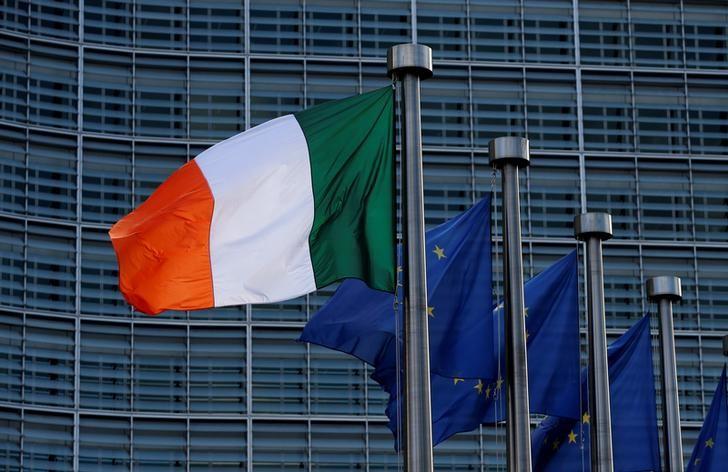Ireland's issue leaves British and EU civil servants scratching their heads

- Country:
- Ireland
Brains, sweat and toil over the past week brought British and EU civil servants to the brink of a Brexit deal at the weekend, but in the end the painful history and fraught future of a divided Ireland defeated them.
EU sources familiar with events in the European Commission's Brussels headquarters over the weekend told Reuters more work was needed on the so-called Irish "backstop". But it is now mostly up to political leaders to unravel a knot that has defied the creativity of Europe's finest diplomatic brains.
"There is only so much we can do," said an EU diplomat. "The Brits are not ready, they need more time," he added.
He echoed a widely held view that British Prime Minister Theresa May needs more of a sense of political crisis at home in order to persuade hardline political allies to give up the last concessions needed for an agreement.
Teams led by Oliver Robbins, May's Europe adviser, and Sabine Weyand, German deputy to French chief EU negotiator Michel Barnier, worked long hours, often into the night, over the past week and were still thrashing over ways to bridge gaps late on Saturday in the hope of an Irish solution.
But by early Sunday, despite clearing out conflicts on other issues in what diplomats called an atmosphere of rising mutual appreciation, it seemed the Irish border was a bridge too far.
London was still loath to endorse even the most modest insurance clause that might one day treat Northern Ireland differently from the British mainland in the interest of keeping the fragile province's land border open, a key aspect of the 1998 peace deal that ended decades of Irish sectarian bloodshed.
May's "backstop" solution remained to keep the whole of the United Kingdom inside the EU customs area longer than planned until a new UK-EU trade deal is agreed that would ensure there is no friction on the Ireland-Northern Ireland border - but with a get-out clause to avoid this backstop becoming permanent.
The Europeans had scaled back demands on Ireland as far as they could, offering to extend the whole United Kingdom's place inside the EU customs area by a year and keep any checks on trade between Northern Ireland and the mainland discreet.
But they could not agree to sign a withdrawal treaty that leaves the Irish border issue dependent on the uncertain result of future talks on EU-UK trade relations. The British complained that the EU wanted a "backstop to the backstop" and said No.
Addressing the British parliament on Monday, May urged the EU not to allow a stand-off over the Irish backstop to derail the Brexit talks, saying she believed a deal was achievable.
SUMMIT WEEK
When May's Brexit Secretary Dominic Raab flew in to meet Barnier in the late afternoon on Sunday to formally convey Britain's red line on the backstop, that meeting not only did nothing to ease the impasse but, said EU sources, seemed to reopen other issues that the technical negotiators thought were closed.
Leaders of the other 27 EU states will now meet over dinner in Brussels on Wednesday to discuss how to proceed. They have invited May to speak to them ahead of their regular EU summit on Thursday but they will try not to negotiate with her.
They will take account of a briefing from Barnier to their Europe ministers on Tuesday in Luxembourg, and any new moves from May, who told parliament in London on Monday that the Irish backstop blockage should not derail Brexit talks.
Some, notably including French President Emmanuel Macron, want to press Britain - and Northern Ireland's Democratic Unionist Party (DUP) which props up May's minority government - to give ground, in part by stepping up plans for a "no deal" outcome next March, widely seen as risking economic upheaval.
Other leaders say diplomats involved in discussions among envoys on Brexit tactics, warned after the weekend debacle to go easy and not repeat the kind of angry cross-Channel rhetoric that followed their last summit with May in Salzburg last month.
For now, the line for EU negotiators is, in an echo of a classic British expression, "keep calm and carry on", hoping that the politicians can find a way to get out of their hole.
"It may take longer for the panic around a no-deal to sink in and, hopefully, soften the DUP line," said an EU diplomat. "And there has never been an EU deal done before the 11th hour."
(With inputs from agencies.)










